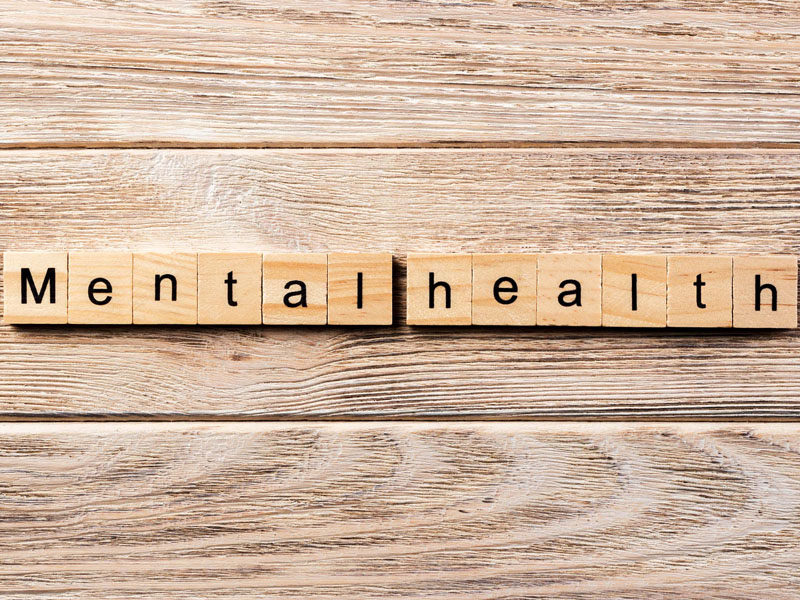Addressing mental health needs in families
Wednesday, August 24, 2022
The last couple of years have been stressful, and while mental health issues have always been common, there has been a significant increase in mental health conditions in both adults and children since the pandemic.
Matt Brosi, Oklahoma State University Extension family sciences specialist, said many of the issues we are seeing deal with anxiety and depression.
 “This highlights the increased need for attention for maintaining mental health and
wellbeing and finding solutions to recognize and address mental health challenges,”
Brosi said. “Starting with the family unit is good because it creates a solid foundation
for both preventative process and mobilizing resources when needed.”
“This highlights the increased need for attention for maintaining mental health and
wellbeing and finding solutions to recognize and address mental health challenges,”
Brosi said. “Starting with the family unit is good because it creates a solid foundation
for both preventative process and mobilizing resources when needed.”
Research indicates parents are experiencing burnout at a higher rate, and balancing increased work demands outside of the home, especially post-covid, exacerbates this process. Add in other stressors such as single parenting, parent(s) with mental health issues and children with mental health issues (ADHD, anxiety, depression,), significantly increases the susceptibility to burnout.
Brosi said parental burnout is leading to increased parent mental health issues, which can lead to utilizing maladaptive coping mechanisms, including substance abuse and utilizing more punitive discipline practices with children.
“When there’s a breakdown in the parenting system, there are ripple effects in how relationships are managed. Burnout also affects a parent’s ability to effectively parent their children. This can result in child behavioral disruptions, externalization of stress and engaging in attention-seeking behaviors,” he said. “It can also cause children to internalize stress and feel isolated, therefore often leading to anxiety and depression.”
Recognizing and intervening the burnout process is key to improving both parent and child mental health outcomes.
In order for parents to address their own burnout, they must schedule time for their partner/significant other; practice setting and holding boundaries and saying no when possible; take time for self-care, especially exercise, sleep, mindfulness and hobbies; and stay connected to other adults.
When dealing with adolescents, parents need to hold their boundaries and identify rules/expectations that are important to them, then let go of as many other things as possible, said Jordan Shuler, doctoral student in Human Development and Family Science at OSU.
“It’s important to be available to talk with adolescents on their own terms and try not to push for interactions,” Shuler said. “However, try to spend time in hobbies with your kids to create the possibility for interactions. Also, acknowledging and validating children’s emotions helps them understand their experiences are real, understood and accepted.”
Other ideas Shuler offers including being available to your teen and remind them they are safe and not alone; get to know your teen’s friends and dating partners by allowing them to spend time at your home; and rebuilding connections with your teen.
Shuler’s strategies for parents with pre-adolescent children include having regular routines for waking up, going to school and bedtime because this provides children with a sense or predictability and safety.
“Work to verbally acknowledge your child’s emotions, thoughts, beliefs and experiences,” he said. “This doesn’t mean you agree with them, but instead, shows you acknowledge the child has their own and those experiences are real.”
Identify activities your child enjoys and join them in their play. As with older children, set your boundaries according to what’s important to you and let go of other things. It’s important to balance parental warmth with firm boundaries; however, discipline behavior, not emotions. Discipline is an opportunity to teach rather than punish.
Shuler also said it’s important for parents to be a calm presence. This doesn’t mean not ever feeling sad, angry or disappointed. Parents need to acknowledge the emotion in themselves, but when expressing it, do so in a respectful, calm manner. This models to your children how to behave when experiencing uncomfortable emotions.
“Parents must realize they have to help themselves before they can be their best selves when parenting,” Brosi said. “This means taking care of your own needs as a parent, including getting professional help when needed to manage burnout, relationship issues and mental health challenges.”
